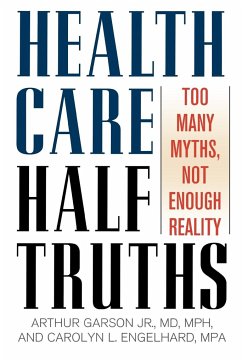
Beginnings Count
The Technological Imperative in American Health Care a Twentieth Century Fund Book
Versandkostenfrei!
Versandfertig in 1-2 Wochen
44,99 €
inkl. MwSt.

PAYBACK Punkte
22 °P sammeln!
In the wake of the recent unsuccessful drive for health care reform, many people have been asking themselves what brought about the failure of this as well as past attempts to make health care accessible to all Americans. The author of this original exploration of U.S. health policy supplies an answer that is bound to raise some eyebrows. After a careful analysis of the history and issues of health care, David Rothman concludes that it is the average employed, insured "middle class"--the vaguely defined majority of American citizens--who deny health care to the poor. The author advances his ar...
In the wake of the recent unsuccessful drive for health care reform, many people have been asking themselves what brought about the failure of this as well as past attempts to make health care accessible to all Americans. The author of this original exploration of U.S. health policy supplies an answer that is bound to raise some eyebrows. After a careful analysis of the history and issues of health care, David Rothman concludes that it is the average employed, insured "middle class"--the vaguely defined majority of American citizens--who deny health care to the poor. The author advances his argument through the examination of two distinctive characteristics of American health care and the intricate links between them: the ubiquitous presence of technology in medicine, and the fact that the U.S. lacks a national health insurance program. Technology bears the heaviest responsibility for the costliness of American medicine. Rothman traces the histories of the "iron lung" and kidney dialysis machines in order to provide vivid evidence for his claim that the American middle class is fascinated by technology and is willing to pay the price to see the most recent advances in physics, biology, and biomedical engineering incorporated immediately in medical care. On the other hand, the lack of a universal health insurance program in the U.S. is rooted in the fact that, starting in the 1930s, government health policy has been a reflection of the needs and concerns of the middle class. Playing up to middle class sensibilities, the American presidents, Senate and Congress based their policy upon the private rather than the public sector, whenever possible. They encouraged the purchaseof insurance based on the laws of the marketplace, not provided by the government. Private health insurance and high-tech medicine came with a hefty price, with the end result that about 40 million Americans could not afford medical care and were left to fend for themse














